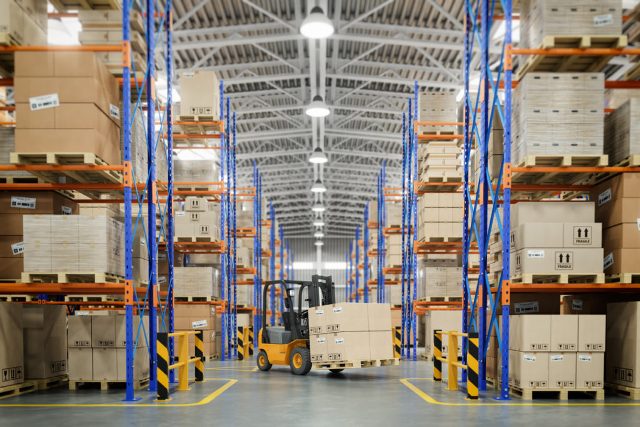by Aditya Vazirani, Founder Director, RGL
Although tech adoption and emerging tech innovations have been the buzzwords for industries and businesses during the Covid pandemic; it is still a long way from becoming widely adopted across sectors, especially in India. While consumer-facing sectors like BFSI, retail, hospitality, and corporate workplace functions like HR and operations, are ahead of the curve when adopting AI and emerging tech, key sectors like Logistics and warehousing, continue to be slower in adopting these innovations. Even as modern supply chains embrace the latest drone delivery model - which is still in the very nascent stages and still being tested for efficacy and business sustainability, the technology is yet to make itself palatable for the Indian logistics and supply chain sector, especially warehouse management.
Listed here are some of the key challenges that need to understand, to truly drive wide-scale digital adoption across logistics, warehousing, and supply chain networks:
- What is the Initial Investment: In the backdrop of a global pandemic, costs play a major role in the decision-making process, especially when it comes to technology enablement. More so, limited knowledge or incomplete information can be another challenge when making a decision to invest in tech adoption. Factors like the agility of the solution, the possibility of scaling up or scaling down certain operations, future maintenance and up-gradation costs, and other ancillary costs that will be incurred when actually setting up and using the technology on a day to day basis, need to be all considered and objectively mapped to the long term growth plans of the company. Also important is to weigh in the current vs future need of the solution, urgency, and the long-term goal/ vision of the technology. Gaining detailed knowledge about the various aspects of a technology solution, in relation to the expected results, can help tremendously when adopting a long-term tech-enabled solution.
- What will be the Return on Investment: This is the most important aspect of any investment, and more so in the case of innovative technology solutions like AI and ML. Apart from being well informed and aligning the short and long-term business goals with the investment, it is also important to calculate the value and ROI of tech adoption. While AI and ML solutions are designed for business process automation, data collection, and smart analytics, understanding the exact value it adds to the balance sheets, is vital. From reducing overhead costs, faster deliveries, and happier customers, to costs of regular training, up-gradation and maintenance costs, technology limitations or lack of agility, etc., could all be important factors when considering the ROI of the investment.
- How much Business Efficiency will this drive: After the cost and ROI calculations, the next most important step is to assess the business impact and the overall value proposition of the AI-enabled solution. While one can choose to create either a customized solution that fits perfectly well with the existing system or to embark on an overall digital transformation that can help create an agile and effective value chain. The core focus, in terms of decision making beyond the monetary value, needs to also be on driving business efficiencies, streamlining operations, ease of managing/ execution, and remarkable improvement in business KPI’s.
- Will it add value to customers: Lastly, all of the above need to eventually also translate into a positive customer experience and enhanced brand value. When analyzing digital adoption across supply chain networks, particularly in the case of warehousing and logistics, which caters to a varied set of clients, it is important to evaluate unique customer needs and ensure the overall technology enablement benefits the entire spectrum of clients, instead of just a select few. From requirements around temperature-controlled storage, real-time tracking and updates, pharma supply chains, and other value-added service requirements of manufacturing, pharma, F & B, etc., technology enablement at various points in the supply chain needs to be relevant and wholesome, such that it drives customer satisfaction and delight, translating into long term business growth and opportunities for expansion.
While technology adoption across sectors has been on a rise, particularly in the post COVID era, the above factors can help logistics and supply chain service providers to evaluate, understand and objectively analyze the need and value of adopting an emerging tech solution, that is best suited to their business goals and growth plans.






